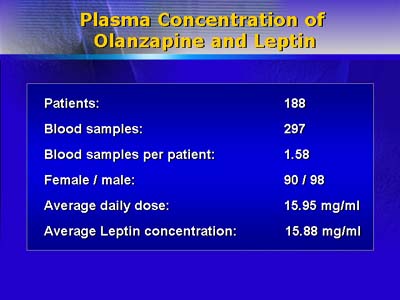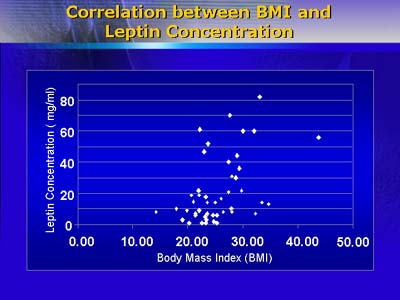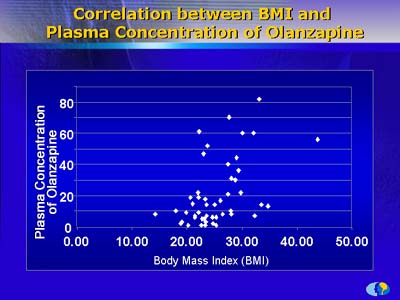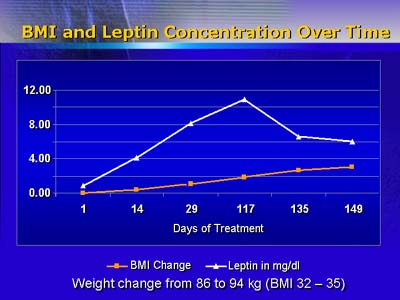Dr. Dobmeier reminded the audience that leptin is a hormone discovered in 1995. It is produced by fat cells. Genetic deficiencies in this hormone are associated with obesity. The intake of leptin leads to decreases in appetite. In addition, leptin is found in the central nervous system. One study showed that olanzapine and clozapine both lead to increases in serum leptin concentration within four weeks of beginning treatment.
He posed these questions: Is there a correlation between plasma concentration of olanzapine and blood leptin level? If so, does this increase in leptin cause weight gain? To answer these questions his group studied 188 subjects with schizophrenia who were taking olanzapine. Half of the subjects were male. He measured blood olanzapine levels, blood leptin levels, and changes in body mass index (the last, from a baseline level assessed through medical records).

The average olanzapine dose in this study was 16 mg/ml. The average leptin concentration was 15.9 mg/ml. This leptin concentration is higher than normal. However, Dr. Dobmeier did not find any significant correlation between body mass index and leptin concentration. He also did not find a significant correlation between body mass index and olanzapine blood concentration. He did find a correlation between the blood concentrations of leptin and olanzapine. This was particularly clear in women. When he examined time progression, he found that leptin concentration increased in the blood before weight increased in the patients who had the largest weight gain.


Dr. Dobmeier concluded with several statements. First, olanzapine increases blood leptin level and weight. Second, the blood concentration of leptin is correlated with that of olanzapine. Third, leptin levels increase before the patient gains weight. Last, the increase in leptin may be a good predictor of ensuing weight gain.
